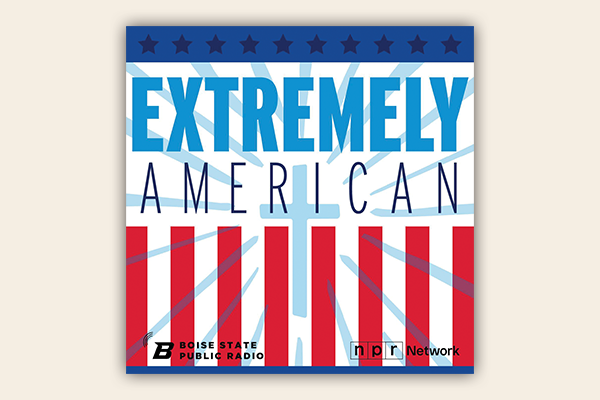On Jan. 18, a scene unfolded in Washington, D.C. — and then across social media — that is all too familiar for many Indigenous peoples. A group of young, white high school boys were seen in the recording harassing Nathan Phillips, an elder and Vietnam veteran of the Omaha tribe, who chose to practice ceremony at the Indigenous Peoples March. Since then, more and more videos of the altercation have surfaced and we now know that there was a third party involved. In a nearly two-hour recording of the events surrounding the viral clip, a group of Black Hebrew Israelites are seen hurling insults at both the white men and Phillips’ group. Yet, the focus of the confrontation between Phillips and Nick Sandmann remained caught in the news, and people immediately raced the well-worn paths to their ideological camps. But missing from the narrative — and certainly from the new counter-narrative — are the Indigenous voices that have been silenced or villainized by the rise and power of white supremacy in America.
It is important to note that the march Phillips participated in was celebrating Indigenous solidarity — an act of reminding the country that we are still here. Vincent Schilling of Indian Country Today reported numerous times on the incident at the march, sharing that Phillips is “also a keeper of a sacred pipe and holds an annual ceremony honoring Native American veterans in the Arlington National Cemetery.”
In the wake of Twitter catching on to this incident, many have come out blaming the young man, his parents, his Catholic school, and Trump, while others have taken his released statement to mean that he was simply there to make peace. You don’t have to look far to see that Trump’s attitude toward Indigenous peoples affects the young men of this country, as hate crimes have risen since he became president. But we have to look beyond Trump to recognize that the colonizing actions of many are part of the longer history of the United States as a settler colonial nation.
Don’t focus on this kid. Focus on the sacred strength of the man who is looking a young colonizer in the eye as he sings the songs of his ancestors.
— Kaitlin Curtice (@KaitlinCurtice) January 19, 2019
We are still here. https://t.co/Kr6MOjF05l
Nick Estes in his book, Our History Is the Future, says, “Indigenous resistance is not a one-time event.” Non-Native colonizers should be held accountable, but on a larger scale, America needs to recognize that its very beginnings are grounded in colonization, and therefore, it is a colonized institution in and of itself. That means that on all sides of the political spectrum, we must work together to decolonize, to break down toxic stereotypes, and to work harder to listen to Indigenous peoples. It means we hold our political parties, our religious institutions, our businesses, our sports teams, and our schools accountable for the hate they perpetuate toward Indigenous peoples on a regular basis. For America to really change, it has to understand that Indigenous peoples are still here, and our cultures have never gone away.
The fact that this incident happened on the stairs of the Lincoln Memorial is in and of itself a picture of the way we view our history, often neglecting the fact that a week before signing the Emancipation Proclamation, Lincoln approved the hanging of 38 Dakota men in the largest mass execution in United States history. So we cannot simply point the finger at Trump’s followers and proclaim that they are to be punished for the way they behave; we have to recognize that for Indigenous peoples, the United States has always been stolen land. It wasn’t until 1978 that the American Indian Religious Freedom Act was passed; before then, many religious ceremonies crucial to our way of life were banned. This, alongside atrocities like religious (often Catholic) Indian boarding schools, is our history, and we have to talk about it.
This isn’t problem with Trump.
— Rebecca Nagle (@rebeccanagle) January 19, 2019
This is not a problem with #MAGA fans.
This is not a problem with the right.
This is a problem with America. #WeAreStillHere #NativeTwitter https://t.co/C736HWsHaE
In a piece I wrote for Sojourners called "America, The Bully: We Grew Up This Way," I explain:
If we really want something to shift under the reign of Donald Trump, we need to realize that he is not the first bully to head the gang; the very DNA of this land that was "made for you and me" was made at the expense of my ancestors so men like Trump could rise to the top and trample those who seemed to be in their way.
In a season of Elizabeth Warren’s DNA tests and Trump’s comments mocking Wounded Knee and Matoaka (Pocahontas), it is important that we remember that this nation was founded on the genocide of Indigenous peoples, and that our story must be told. The Indigenous Peoples March only made the news because there was a discriminatory incident involved, not because Native bodies and lives are valued. Indigenous bodies hold our history, a history of resistance against colonial settler institutions, and before anything can really change in America, we must face our demons and honor truth of the Indigenous story.
That Indigenous story includes Nathan Phillips. It includes every Native American veteran that fought for the U.S. It includes our ancestors who were forced off of their homelands. It includes the kin of the Dakota 38 who were massacred. It includes the Indigenous academics of our day who are teaching their students to decolonize. It includes our stories of resilience, a resilience displayed in the faces of our elders who carry our stories and our children who will carry our future.
Indigenous peoples aren’t going anywhere. The question is, in the face of whiteness, how will America respond to Indigenous resistance on display?
Got something to say about what you're reading? We value your feedback!







